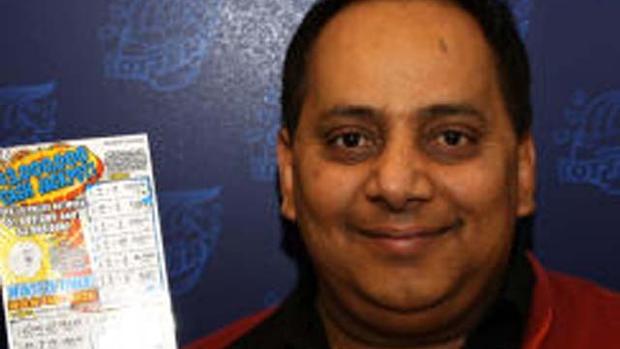No winning ticket sold in record Powerball drawing
For lottery players, the dream lives.
No winning ticket was sold in Saturday night's $949.8 million Powerball drawing, lottery officials said. With no one matching all the numbers, the new jackpot is expected to hit $1.3 billion. That amount is more than double the previous Powerball record of $590.5 million, which was won by a Florida retiree in 2013.
The winning numbers -- disclosed live on television and online -- were 16-19-32-34-57 and the Powerball number 13.
Powerball is played in 44 states as well as the District of Columbia, U.S. Virgin Islands and Puerto Rico. The next Powerball drawing is Wednesday.
Without a winner for the massive prize, which has steadily swelled from $40 million on Nov. 4, the odds grow by the week that someone will win. It also means that the lottery "fever" evident in states around the U.S. is sure to continue.
Sales of Powerball tickets have been brisk since Wednesday's estimated $500 million drawing. As of 10 p.m. Eastern time on Saturday, an hour before the drawing, 31 million Powerball tickets had been sold in California alone at a rate of $3 million an hour.
Orders for tickets, which cost $2 apiece, have jumped in recent weeks as the Powerball prize climbed into the stratosphere. The U.S. saw sales of $277 million on Friday alone, and more than $400 million were expected Saturday, according to Gary Grief, executive director of the Texas Lottery. In Iowa, so many people bought Powerball tickets on Friday that some stores ran out of paper for tickets, leaving lottery workers scrambling to resupply the outlets.
This kind of huge jackpot was just what officials with the Multi-State Lottery Association, which runs the Powerball game, hoped for last fall when they changed the odds of matching all the Powerball numbers, from about one in 175 million to one in 292 million. By making it harder to win a jackpot, the tougher odds made the ever-larger prizes inevitable.
The record jackpot lured an unprecedented frenzy of purchases. Anndrea Smith, 30, said Saturday that she already had spent more than she usually does on Powerball tickets.
"I bought four yesterday, and I usually never buy any," said Smith, manager of Bucky's gas station and convenience store in Omaha, Nebraska. She's not alone, saying the store sold "about $5,000 worth of tickets yesterday. Usually on a Friday, we might sell $1,200 worth."
Officials with the Multi-State Lottery Association said they expected about 75 percent of the possible number combinations would have been bought for Saturday night's drawing.
The odds are a matter of statistics and probability, but they're facts that most players may not completely understand, said Ron Wasserstein, executive director of the Alexandria, Virginia-based American Statistical Association.
"Once you get numbers that size, it's hard for people to wrap their minds around them," Wasserstein said.
It's not like players ever had a great shot at winning a jackpot, but by lengthening the odds, he said, "You take odds that were really, really small before, and now they're nearly twice as small as they were before."
